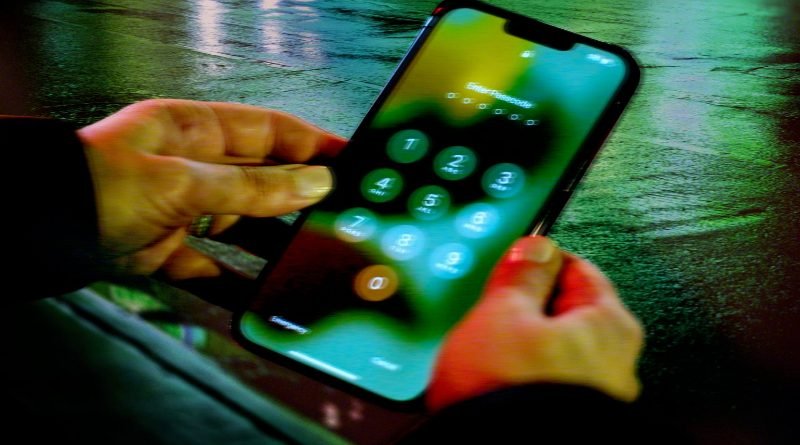Securing Your Call Recordings Using Tips for Protecting Sensitive Conversations on iPhone
Communication in today’s modern world has undergone significant changes, especially in terms of connectivity. Now, you can establish and maintain social connections regardless of your location. However, the issue of online privacy remains a major concern for both commercial and regular customers. Rest assured, there’s no need to compromise on security and privacy when making online calls. It is crucial to employ encryption to ensure safe and secure communication. We will show you how to ensure call recording privacy in real conditions.

#1 Adjust your settings
When making a call, remember to consider the call’s setting. Whether you’re using an app or not, prioritizing settings is crucial for online protection. Keep in mind that most privacy and security settings are typically disabled by default. If you work for a company, it’s advisable to seek guidelines on online call settings. Take the time to click through and inspect each setting to achieve optimal results and prevent unauthorized individuals from joining your call.
#2 Limit the personal information shared
Make sure you know everyone you share your cell phone number with and have their contact information, including full names, phone numbers, and workplaces.
If you decide to give your number to businesses, organizations, or establishments, make sure you receive a written privacy policy or at least understand their policy. If there’s no written policy, you can ask for their business registration number to check their authority and any history of fraudulent activity.
#3 Use reliable call recording apps
You need to make sure that the iPhone call recorder app uses advanced data protection systems. Ideally, an iPhone phone recorder should not collect personal data. The function of storing records on call recorder servers is a double-edged sword. Yes, it’s convenient, because you can download the app for iPhone and connect to your account with recordings. On the other hand, there is always a risk that recording calls may be compromised by a third party. It’s also wise to check the available security options for call recordings. Perhaps there is password protection, FaceID, or two-factor authentication. One of the most advanced on the market is iCall, especially since it has a free trial version. However, personal analysis does not cancel this.
#4 Opt-out of sharing CPNI and PII
Read the company’s service policy carefully. Somewhere in the policy, you may find a statement that allows you to choose not to share your CPNI with third parties. If you can’t locate the statement, call the telephone company for assistance. Once you’ve found and read the statement, or if it doesn’t exist, contact your telephone company and let them know you want to opt out of sharing your CPNI with third parties.
#5 Protect your PINs and passwords
If you struggle to remember your PINs or passwords, ensure that any written reminders are kept in a secret location inaccessible to others. Make sure any written passwords you keep are not accompanied by the corresponding account number(s) or the name. Be cautious of your surroundings when entering your PINs or passwords, and ensure that your actions are not visible or audible to anyone nearby.
Never share your PINs or passwords with others. If you choose to authorize someone with limited access to your account using your PIN or password, remember to change the password (either online or by phone) as soon as you no longer wish to grant that individual access to your account.
#6 Update your software regularly
Outdated software and apps are more susceptible to hacking attempts. To ensure the security of your online calls, regularly update these tools. Keep in mind that software companies and app developers send updates to fix security flaws, so it’s important to check for and install them. Make sure to update your devices if there are pending updates or verify if everything is up-to-date in advance.
#7 Limit file sharing
During online calls, file sharing is an excellent method for communication and collaboration. However, sharing files can pose a threat to conference calls, as unauthorized access or the dissemination of malware can occur.
To mitigate these risks, it is crucial to temporarily suspend file sharing during your calls. Alternatively, you can limit file-sharing privileges to select members who need to share important files with others. This precautionary measure will help minimize the risk of members downloading malware or your sensitive data falling into the wrong hands.

#8 End-to-end encryption
End-to-end encryption is a highly effective security feature used in various fields. It plays a crucial role in safeguarding your calls from unauthorized individuals attempting to gain access and exploit sensitive data.
The widespread adoption of end-to-end encryption by major brands is a testament to its reliability as a security measure. This technology has proven its effectiveness in protecting communications on platforms such as WhatsApp, Apple’s FaceTime, and others. Investing in this feature for personal online calls is of utmost importance.
Conclusion
In the real world, communicating via phone is not as secure and private as some may think. Additional security measures will never be superfluous if you value your anonymity and privacy. Start with the solutions described here and you will be one step closer to complete anonymity.
Also visit Digital Global Times for more quality informative content.

